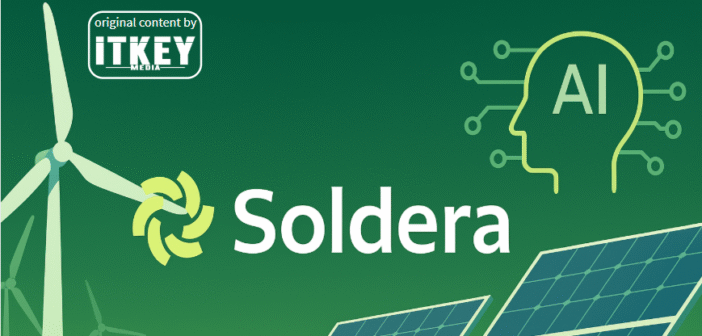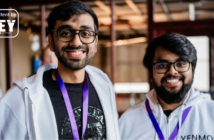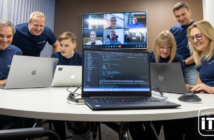- Soldera brings in EUR 2.5M to streamline renewable energy certificate (GO) management using AI
- Its platform automates GO processes, reducing bureaucracy and boosting revenue for 3,000+ producers
- The startup tackles EU regulatory fragmentation, enabling cross-border trading through custom registry integrations
- Future plans include hourly GO trading, AI-powered transactions, and growing core GO market infrastructure
Soldera, the Estonian one-stop-shop platform for managing and exchanging renewable energy Guarantees of Origin (GOs), successfully raised EUR 2.5M in its Seed round of investment this March. Helsinki-based Lifeline Ventures led the round, joined by Skaala and the well-known Estonian VC fund Lemonade Stand (invested in Kwota, among others).
Guarantees of Origin in a Nutshell
Simply put, renewable energy certificates, called GOs in Europe, are proof that green electricity was produced. When clean energy—like solar or wind—enters the power grid, it mixes with all electricity, making ‘green electrons’ impossible to track physically. Instead, for each unit of renewable energy made, producers get one certificate, or Guarantee of Origin. Companies buy these certificates alongside electricity to prove they’re using green energy. This creates additional income for renewable energy producers and helps businesses meet environmental goals and comply with government requirements. Various EU regulations are actively pushing companies toward the use of renewable energy certificates, creating a bullish regulatory environment.
The GO system encourages the use of renewable energy in two ways: It rewards those who produce it with additional revenue and creates demand from businesses that need to show they’re using clean energy.
Founders and Mission
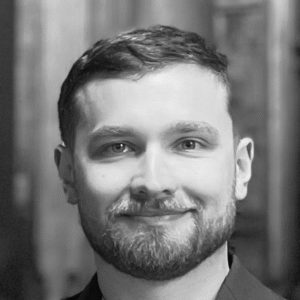
Stenver Jerkku, Founder and CEO at Soldera
As for Soldera, it was founded by Stenver Jerkku (CEO) and Al William Tammsaar (CPO) after a decade-long partnership centered on fighting climate change and working in environmental commodities to create market-based solutions. Their collaboration spanned multiple ventures, including E-agronom, a leading climate tech company in CEE, and Solid World, a carbon credit trading platform. Their complementary technical backgrounds proved crucial when they discovered that 30% of renewable energy producers weren’t selling their GOs because of bureaucracy. The co-founders’ relevant technical expertise, environmental commitment, and expertise-execution dynamic positioned them perfectly to create an AI-powered solution that would transform renewable energy finance through automation and producer aggregation.
Lemonade Stand had backed the duo previously. ‘After their pivot to Soldera, we knew we wanted to continue to support them. It’s a team that can turn on a dime, knows how to find a real problem and iterate quickly on a solution. Their customer traction is some of the fastest in our portfolio giving them a foothold in a rapidly expanding renewables market.,’ Lemonade Stand’s managing partner Siim Teller tells ITKeyMedia.
AI-Powered GO Management
Soldera offers an AI-powered platform that automates the management and trading of Guarantees of Origin (GOs) for renewable energy producers. Its streamlined certificate issuance, equipment registration, sales, and invoicing significantly reduces administrative workload. The platform connects over 3,000 producers with a wide network of buyers, enabling competitive pricing and increased revenue. Features such as spot sales and forward-hedging strategies help optimize earnings. Soldera’s solution enhances market access, simplifies compliance, and ensures efficient, transparent transactions, making GO management faster and more profitable for renewable energy providers across the sector.

Jyri Engeström, Partner at Lifeline Ventures
‘By simplifying the sale of GOs, they are unlocking a new revenue stream for anyone generating renewable energy—from small residential solar panels to large-scale wind farms’ as Lifeline Ventures’ partner Jyri Engeström puts it.
According to Mr Jerkku, Soldera’s proprietary AI tools function in tandem as an end-to-end agent for renewable energy producers, automating the entire guarantees of origin process. They handle all paperwork, reporting, monitoring, invoicing and sales operations – eliminating 95% of administrative work while securing optimal market prices.
‘The most powerful feature is aggregating volumes from multiple GO production volumes, creating collective bargaining power that delivers up to three times better results than producers achieve individually. Developed in-house, the system transforms what was previously a fragmented, manual, and bureaucratic process into a streamlined, automated solution that maximizes producer revenue with minimal effort,’ the CEO tells ITKeyMedia.
Spot Sales vs. Forward-Hedging Strategies
Spot sales deserve a separate mention in the GO context. They involve selling GOs shortly after they’re produced at the current market price. In simple words, it means selling your renewable energy certificates immediately for whatever the market is offering right now. Naturally, it exposes producers to market volatility – for example, GO prices have dropped from around €8 per megawatt-hour to below €1 currently.
In contrast, forward-hedging strategies involve securing prices for future GO sales in advance. For example, Soldera offers options where producers can lock in prices for 40-60% of their future production up to one year ahead, spreading sales equally across quarters. This provides more predictable income and protects against price drops, but producers might miss out on higher prices at times.
Soldera recommends most producers avoid trying to time the market themselves—something that caused many losses due to expiry dynamics—and instead use dollar-cost averaging: regularly selling small portions of their production to achieve average market prices over time. This approach is particularly beneficial for smaller producers who lack trading expertise and resources.
Tackling Regulatory Fragmentation
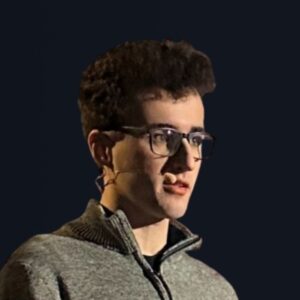
Oliver Bonallack, Founder’s Associate at Soldera
To accommodate growing demand in simplified GO management across different regions of the EU, Soldera naturally has to handle differences and ongoing changes in regulation across various jurisdictions. The platform overcomes market fragmentation through custom-built registry integrations tailored to each country’s unique regulatory environment. Since every government has a different approach to building software systems, Soldera’s team develops specific connections to each registry.
‘These technical integrations are Soldera’s biggest challenge but also our competitive advantage. Our platform architecture is designed to standardize this fragmentation by building a unified interface that connects to diverse government systems, enabling producers to navigate complex cross-border regulations through a single streamlined platform rather than dealing with multiple bureaucratic processes, logins, and interfaces across different countries,’ Soldera’s founder’s associate Oliver Bonallack explains.
Market Outlook and Policy Signals
Speaking of ongoing changes, Mr Jerkku notes a few policy changes from Soldera’s Q2 Market Outlook:
- Despite political changes, Germany’s coalition government has reaffirmed its 2040 net-zero commitments, providing stable regulatory support for renewable markets.
- Energy-intensive industries across Europe are increasingly receiving government incentives and discounts for consuming renewable energy, creating new demand sources through indirect subsidies for GO purchases.
- The EU’s push toward green hydrogen certification, though currently hindered by overly strict requirements, signals strong commitment to expanding renewable certification into new sectors. Once these regulations are simplified to better align with existing GO frameworks, demand will increase substantially.
- Additionally, the continued expansion of the AIB system is gradually improving cross-border standardization, with countries like Poland working toward integration.
- The omnibus package could reduce CSRD reporting requirements from 50,000 to 10,000 companies, potentially decreasing GO demand by approximately half compared to previous forecasts—a bearish signal that’s already affecting forward prices.
Hourly GOs, AI-Driven Trading, and Other Preparations
In view of these and other tendencies, Soldera evolves and develops its offering further. One plan that Mr Jerkku shares has to do with future-proofing the platform’s architecture to accommodate hourly-based GO trading, which—the team is convinced—represents the next major evolution in the market in the future. Currently, guarantees of origin can be traded within a 12-month timeframe (allowing producers to “create the GO in the summer when the sun is shining and then use it in the winter”), but the market is expected to shift to hourly certifications in the coming years. This transition to hourly GOs will eliminate one of the last greenwashing accusations against guarantees of origin by ensuring temporal matching between energy production and consumption. Soldera is building its platform with these EU long-term policy goals in mind, positioning itself to seamlessly adapt when regulations change.
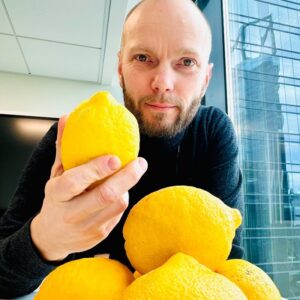
Siim Teller, Managing Partner at Lemonade Stand
On top of this, Soldera is deploying an AI-powered trading agent that eliminates traditional form-based transactions. This allows traders to simply describe their intended actions or upload contracts directly, with the AI handling execution details.
‘We’re establishing ourselves as an escrow layer in the GO ecosystem, enabling traders to receive certificates through Soldera’s accounts even without complete registry documentation—similar to how Revolut or Wise function for financial transactions. This infrastructure significantly reduces friction by allowing direct cancellations and eliminating costly cross-border transfer fees,’ Mr Jerkku specifies.
Behind the scenes, the Soldera team is developing MCPs and robust APIs that will serve as a centralized middleware layer. This empowers developers to build innovative GO solutions without needing to recreate registry logic for each jurisdiction. Ultimately, Soldera aims to become the foundational infrastructure unifying this currently fragmented landscape, creating a more efficient, transparent, and accessible GO trading environment.
Talent, Expansion, and Scaling
To achieve this, the new funding will support Soldera’s expansion, the onboarding of more energy producers, and further development of its technology.
‘Currently, we’re 9 people with 200+ AI agents. The focus remains staying lean and hiring amazing talent, and that has been the first priority of our raise. The more producers we can onboard, the stronger our network becomes—especially when partnered with our ever-expanding network of buyers to increase negotiating power for our producers,’ Mr Jerkku clarifies.
The raised funds also enable geographic expansion with more complex registry integrations, whilst providing more personalized support for larger producers and traders that require back-office, aggregation or management systems with specific requirements.
Energy Transition Through Better Cash Flow
The energy transition is of utmost importance, but margins are eroding for clean energy producers. Financially, the revenue from GO sales is integral to their bottom line, yet up to 30% of renewable production sites don’t engage with this market at all. Soldera uses AI to help renewable energy producers focus on running and growing their businesses without having to struggle through the added GO-related bureaucratic hurdles.
‘More income for producers sounds obvious, but it’s worth considering: predictable and consistent cash-flow is the #1 goal for renewable energy producers— vital to maintaining and growing their operations. A comprehensive solution like this will also incentivise investors to deploy into renewables, de-risking renewable projects,’ Mr Jerkku concludes.

Kostiantyn is a freelance writer from Crimea but based in Lviv. He loves writing about IT and high tech because those topics are always upbeat and he’s an inherent optimist!


